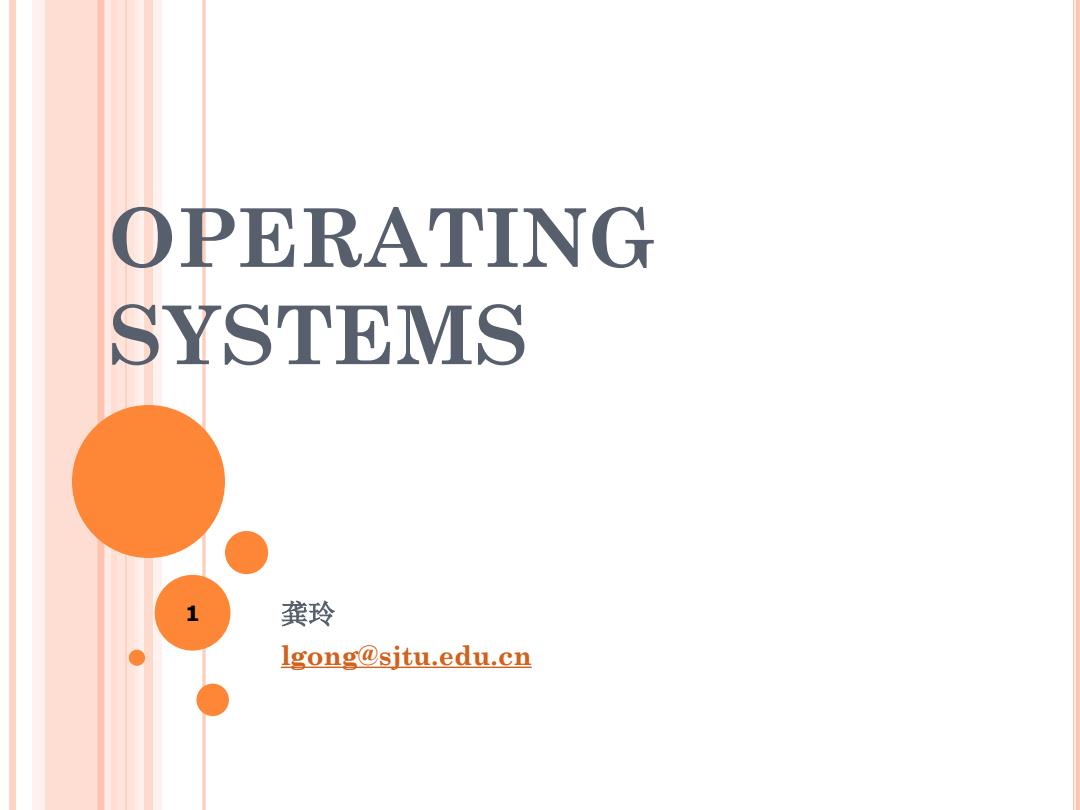
OPERATING SYSTEMS 1 龚玲 lgong@sjtu.edu.cn
OPERATING SYSTEMS 龚玲 lgong@sjtu.edu.cn 1
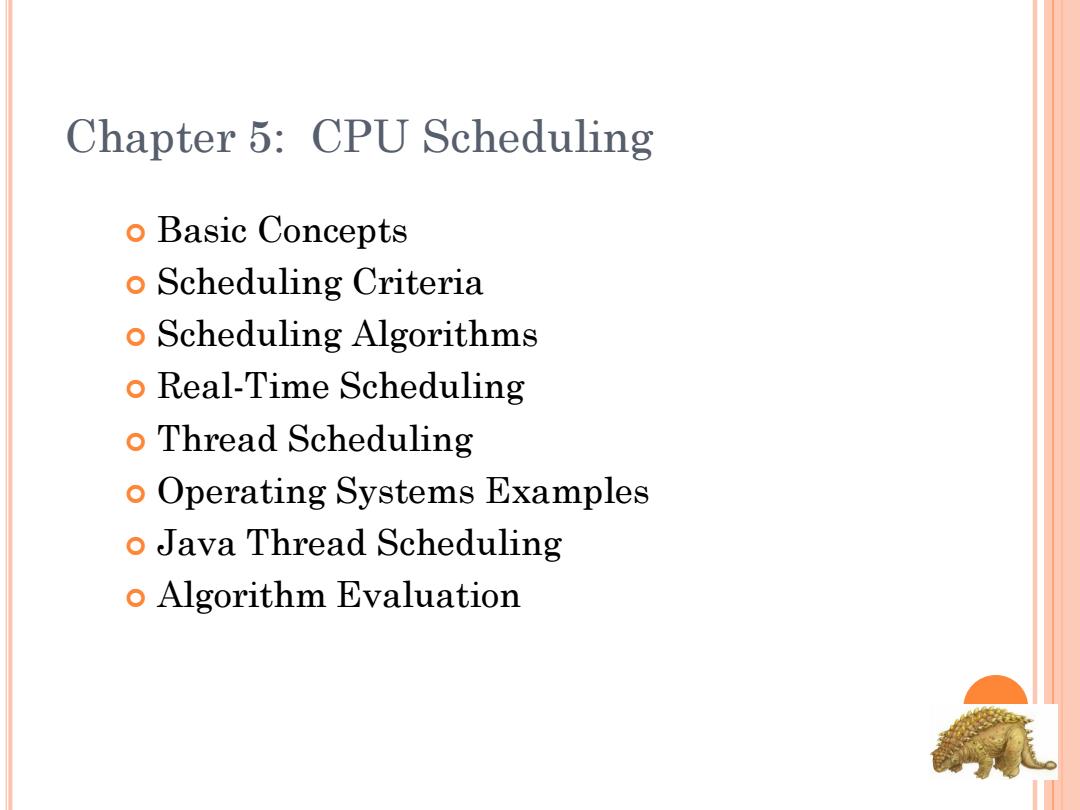
Chapter 5:CPU Scheduling o Basic Concepts o Scheduling Criteria o Scheduling Algorithms o Real-Time Scheduling o Thread Scheduling o Operating Systems Examples o Java Thread Scheduling o Algorithm Evaluation
Chapter 5: CPU Scheduling Basic Concepts Scheduling Criteria Scheduling Algorithms Real-Time Scheduling Thread Scheduling Operating Systems Examples Java Thread Scheduling Algorithm Evaluation

REVIEW o Basic Concepts o Scheduling Criteria o Scheduling Algorithms ohttp://wenku.baidu.com/course/study/77fldcccda38376ba flfae94#665ea0c7aa00b52acfc7ca94
REVIEW Basic Concepts Scheduling Criteria Scheduling Algorithms http://wenku.baidu.com/course/study/77f1dcccda38376ba f1fae94#665ea0c7aa00b52acfc7ca94
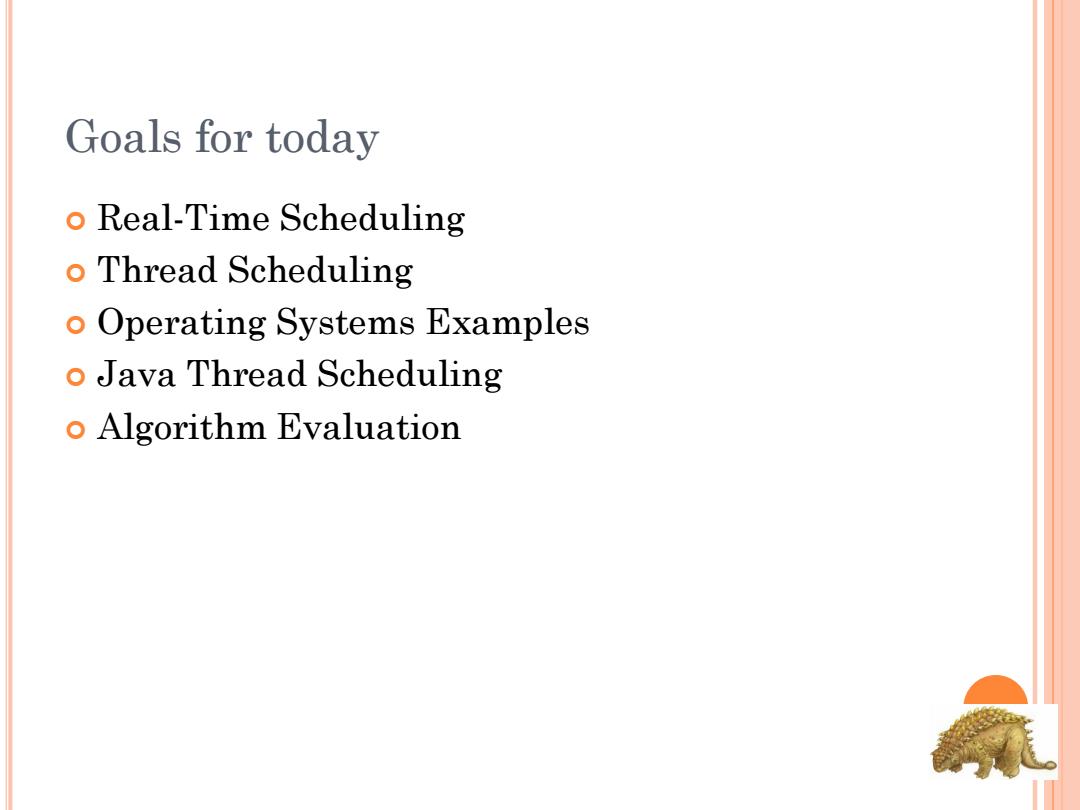
Goals for today o Real-Time Scheduling o Thread Scheduling o Operating Systems Examples o Java Thread Scheduling o Algorithm Evaluation
Goals for today Real-Time Scheduling Thread Scheduling Operating Systems Examples Java Thread Scheduling Algorithm Evaluation
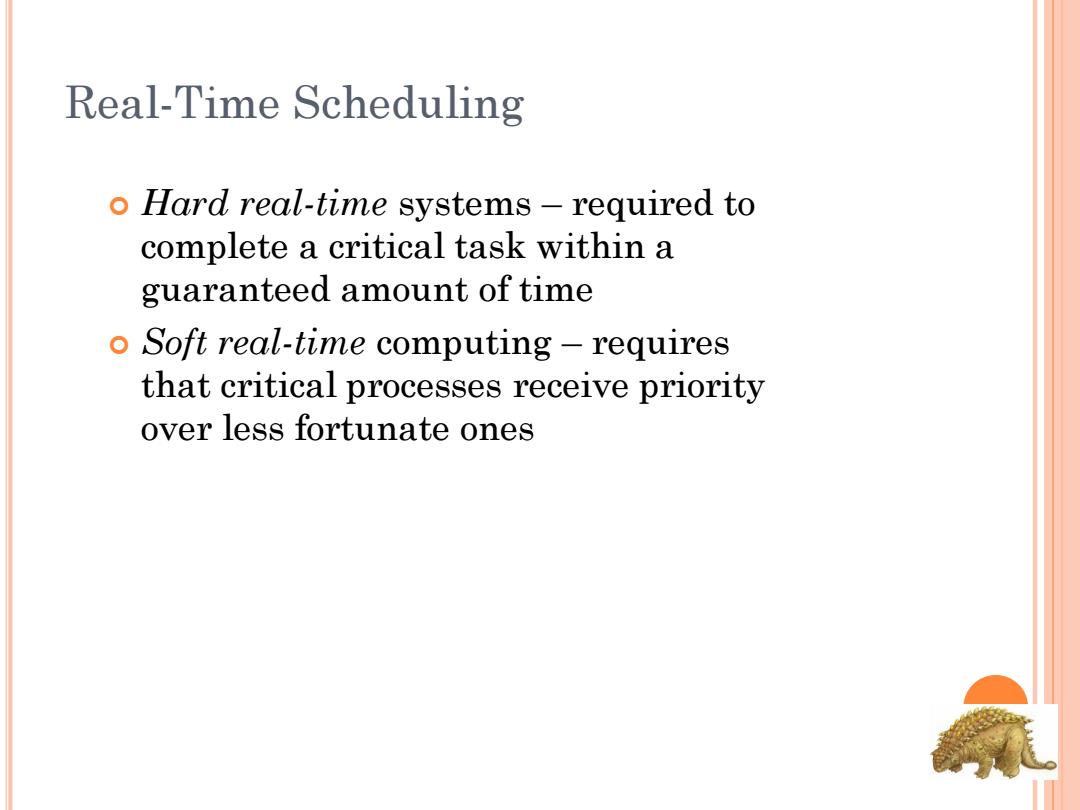
Real-Time Scheduling o Hard real-time systems-required to complete a critical task within a guaranteed amount of time o Soft real-time computing requires that critical processes receive priority over less fortunate ones
Real-Time Scheduling Hard real-time systems – required to complete a critical task within a guaranteed amount of time Soft real-time computing – requires that critical processes receive priority over less fortunate ones
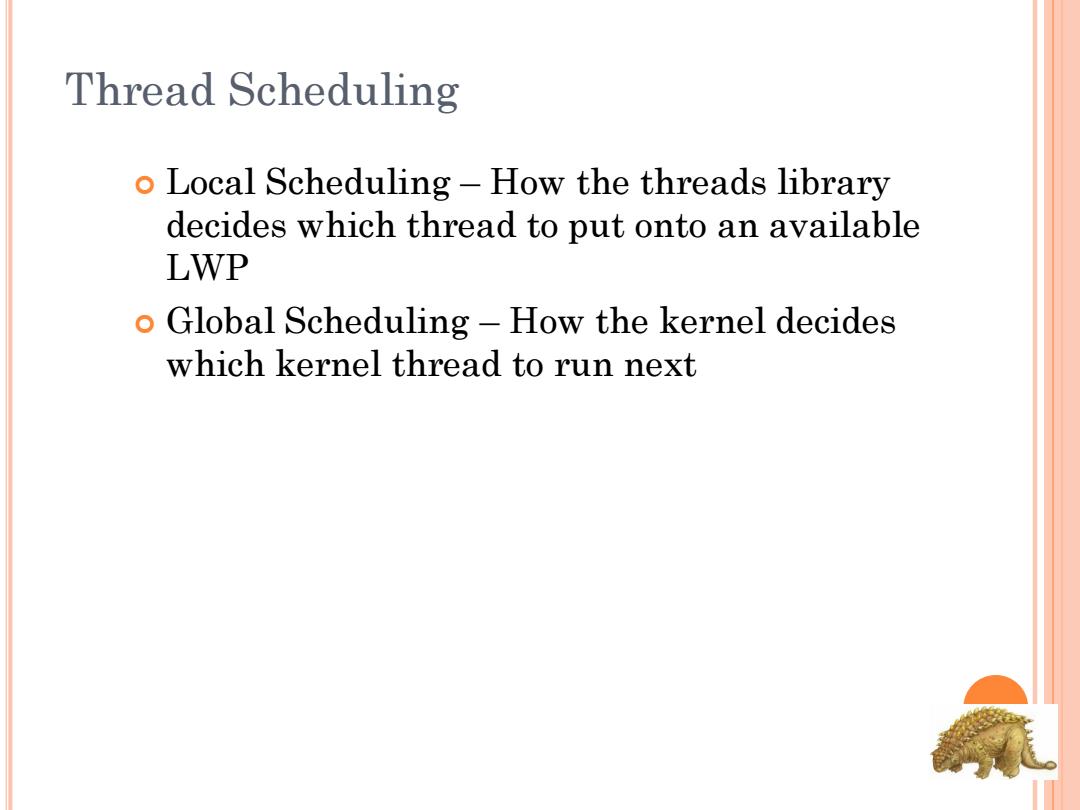
Thread Scheduling o Local Scheduling-How the threads library decides which thread to put onto an available LWP o Global Scheduling-How the kernel decides which kernel thread to run next
Thread Scheduling Local Scheduling – How the threads library decides which thread to put onto an available LWP Global Scheduling – How the kernel decides which kernel thread to run next
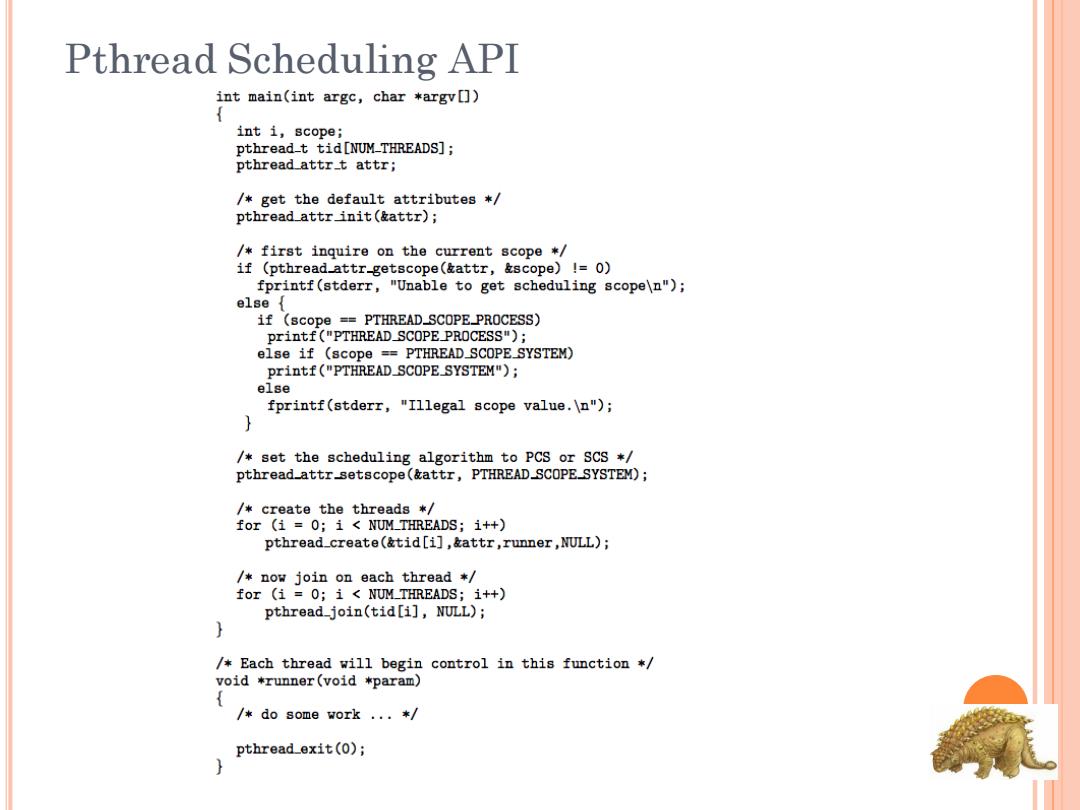
Pthread Scheduling APl int main(int argc,char *argv[]) int i,scope; pthread-t tid[NUM-THREADS]; pthread attrt attr; /get the default attributes * pthread_attr init(&attr); /first inquire on the current scope * if (pthread_attr_getscope(attr,&scope)!=0) fprintf(stderr,"Unable to get scheduling scope\n"); elsef if (scope =PTHREAD_SCOPE_PROCESS) printf("PTHREAD_SCOPE PROCESS"); else if (scope =PTHREAD_SCOPE _SYSTEM) printf("PTHREAD_SCOPE_SYSTEM"); else fprintf(stderr,"Illegal scope value.\n"); /set the scheduling algorithm to PCS or SCS * pthread_attr_setscope(&attr,PTHREAD_SCOPE_SYSTEM); /create the threads * for (i 0;i NUM_THREADS;i++) pthread_create(tid[i],&attr,runner,NULL); /now join on each thread * for (i=0;i<NUM_THREADS;i++) pthread_join(tid[i],NULL); /Each thread will begin control in this function * void *runner(void *param) /do some work ..* pthread_exit(0);
Pthread Scheduling API
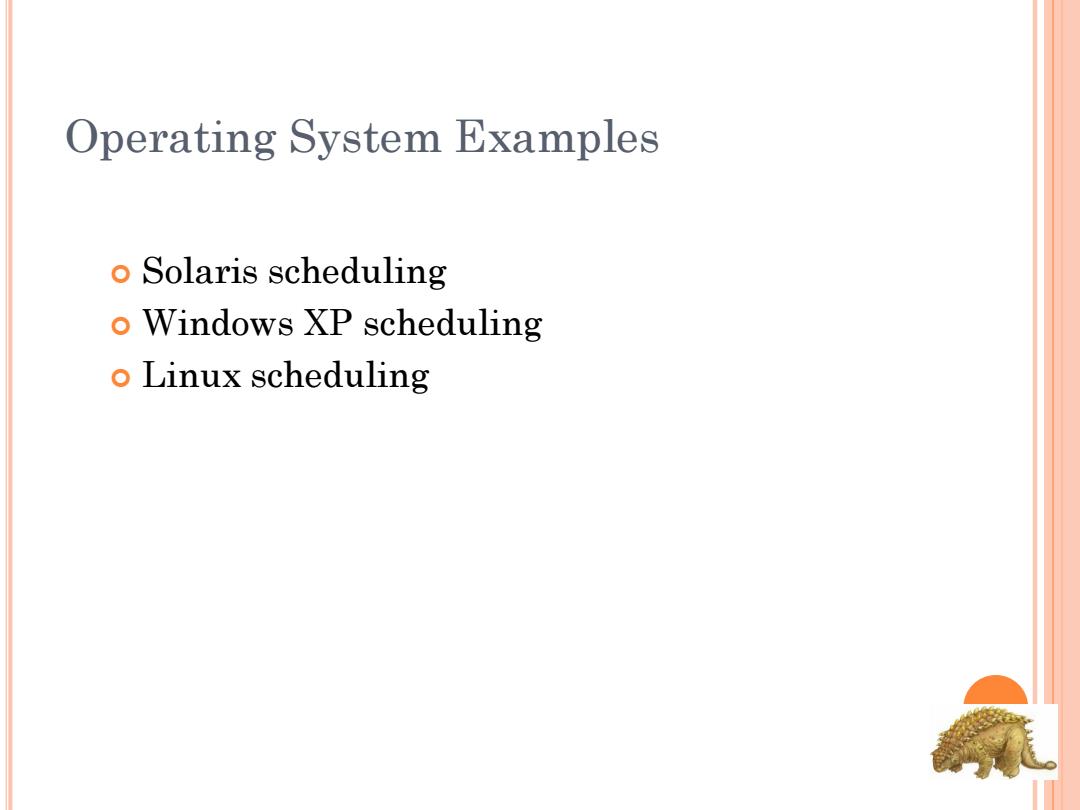
Operating System Examples o Solaris scheduling o Windows XP scheduling o Linux scheduling
Operating System Examples Solaris scheduling Windows XP scheduling Linux scheduling
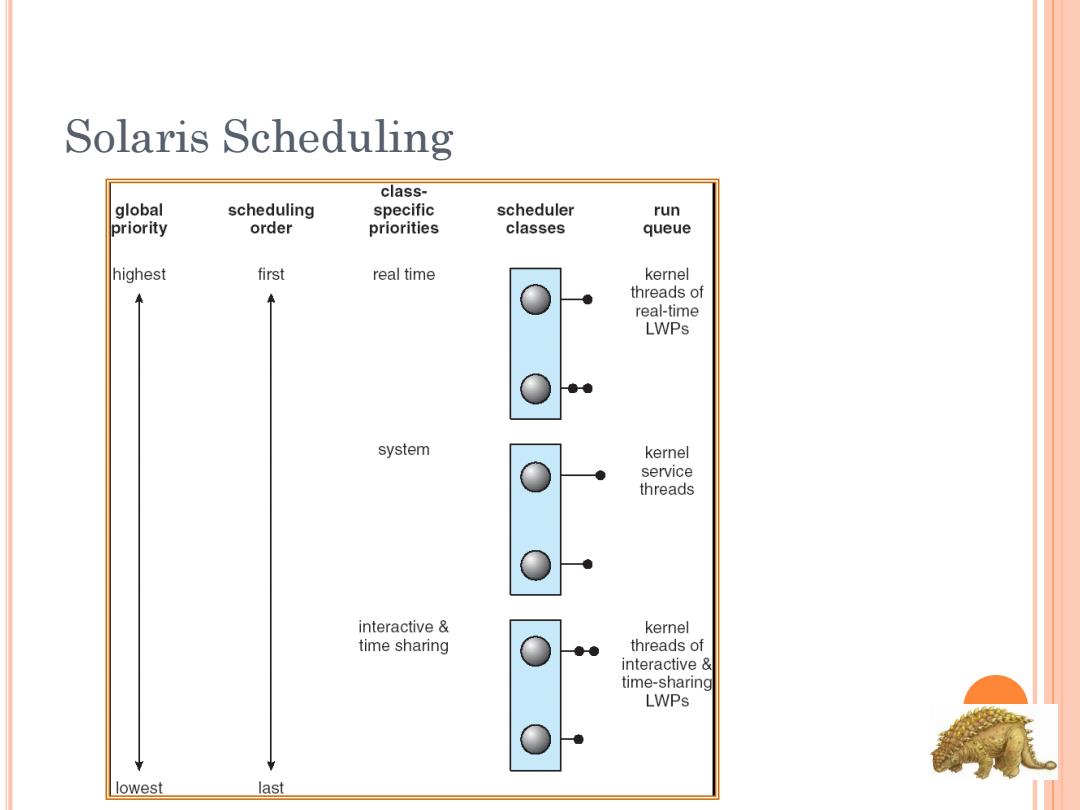
Solaris Scheduling class- global scheduling specific scheduler run priority order priorities classes queue highest first real time kernel threads of real-time LWPs system kernel service threads interactive kernel time sharing threads of interactive time-sharing LWPs lowest last
Solaris Scheduling

Solaris Dispatch Table time return time quantum from priority quantum expired sleep 0 200 0 50 5 200 0 50 10 160 0 51 15 160 5 51 20 120 10 52 25 120 15 52 30 80 20 53 35 80 25 54 40 40 30 55 45 40 35 56 50 40 40 58 55 40 45 58 59 20 49 59
Solaris Dispatch Table